Fifa presidential election: Has Africa lost its clout?
- Published
Who will replace Sepp Blatter at Fifa?
Five people are vying to become the next president of football's crisis-hit world governing body Fifa in Friday's election in Zurich in Switzerland.
All the candidates are battling to get Africa's support because the continent has 54 out of 209 available votes in this much-anticipated contest - more than any other region.
However, Africa no longer decides the outcome of Fifa presidential elections in the way it used to.
Not my words, but those of some of the African leaders who will determine the man to replace outgoing president Sepp Blatter.
In years gone by, Africa, the largest voting bloc in Fifa, held the key.
This was most notable when Brazilian Joao Havelange was elected in 1974 and when he was succeeded by Switzerland's Blatter in 1998.
"It's a cliche," Sierra Leone FA president Isha Johansen told BBC Sport.
"Africa's vote will not come en bloc, as was in the past, so we are not the key issue any more," she said.
This will come as a disappointment to the Confederation of African Football (Caf), which has been urging its members to vote for Sheikh Salman.
The Bahraini, who has had to defend himself from allegations of human rights violations in the run-up to the vote, is one of five candidates.
'Rebellion in the air'
The others are Swiss Gianni Infantino, Prince Ali of Jordan, Frenchman Jerome Champagne and Africa's sole candidate, Tokyo Sexwale, a South African businessman, anti-apartheid activist and 2010 World Cup committee member.
Indeed, Infantino went so far as to claim that he would win over half the African vote, after a visit to Cape Town's Robben Island with Sexwale on Monday.
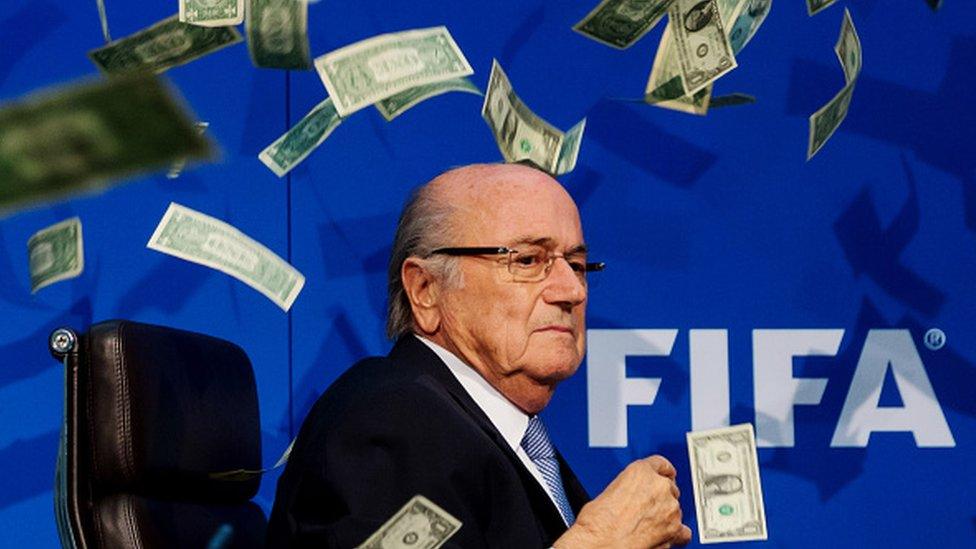
Mr Blatter was forced to step down amid a corruption scandal - he denies any wrongdoing
Liberia FA chief Musa Bility, who has thrown his weight behind Prince Ali, claims the Jordanian will receive a similar number.
"What I'm getting from Africa is that Prince Ali will get the majority and the second-highest number of votes will go to Infantino," he said.
So would Sheikh Salman, Caf's preferred candidate, not even figure in the top two?
"No, not from Africa," Bility, who was excluded from the Fifa presidential contest on eligibility grounds, told BBC Sport.
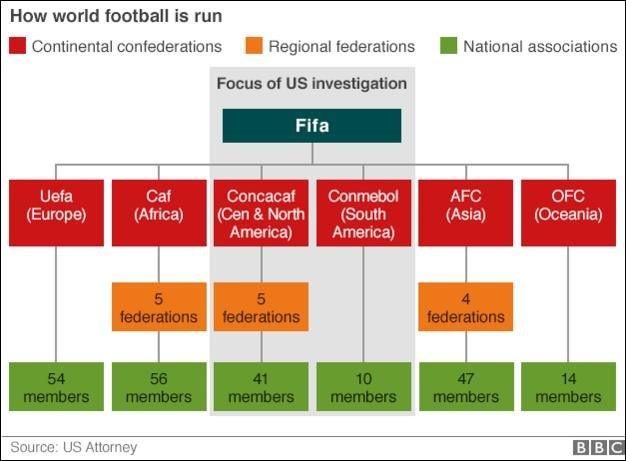
Since the numbers don't add up, one of them is obviously bound to be disappointed.
What is clear though, is the whiff of rebellion in the air.
Sexwale's campaign is seen as low-key, even though he says he has travelled to Europe, the Middle East, the Americas and Africa itself while trying to drum up support.
'Shakier ground'
Nonetheless, there are those who are toeing the Caf party line.
"Africa has a leadership called Caf - and if they say go left, you don't go right," Congo-Brazzaville FA chief Jean-Michel M'Bono told BBC Sport. "That would be indiscipline."
African football's governing body has already shown that it does not want its choice to be meddled with.
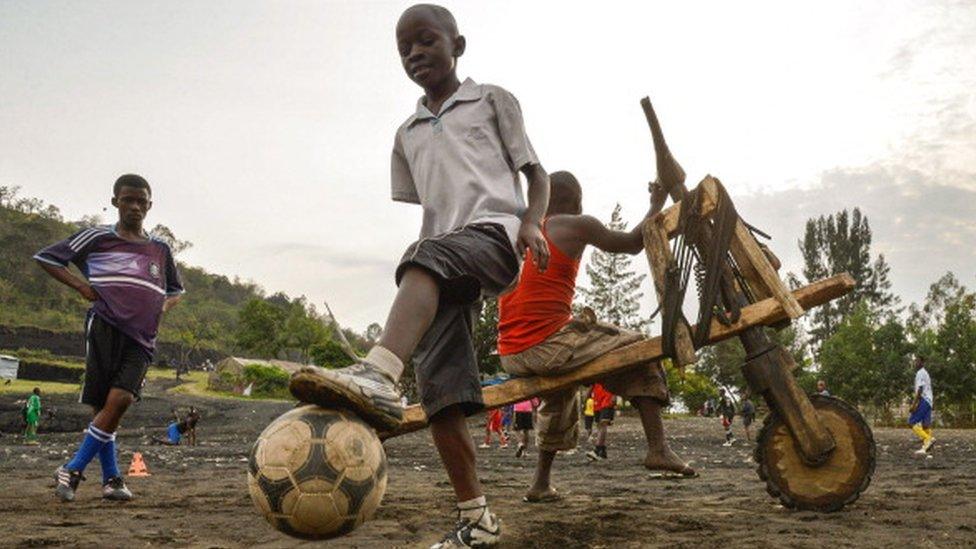
Football is the most popular sport in Africa
When the South Sudan FA was quoted as saying it would vote for Infantino, shortly after Caf had announced its formal backing for Sheikh Salman, a quick U-turn was swiftly announced.
Days later, the Caf website reported South Sudan FA chief Chabur Goc Alei explaining that his support for Infantino had come because he had "yet to receive official communication from Caf on the decision of the executive committee before making public their choice".
He has since announced his vote for Sheikh Salman.
Caf may well want their members to follow suit but, appreciating the "principle of democracy" and that voting is secret, it knows it cannot control their final choices.
And as Caf president and current acting Fifa president Issa Hayatou of Cameroon will recall, he failed to win the full support of Africa even when he was the only man going up against Blatter in the 2002 elections.
So Sheikh Salman's status as favourite may well be on shakier ground than he might like to think.
- Published28 October 2015
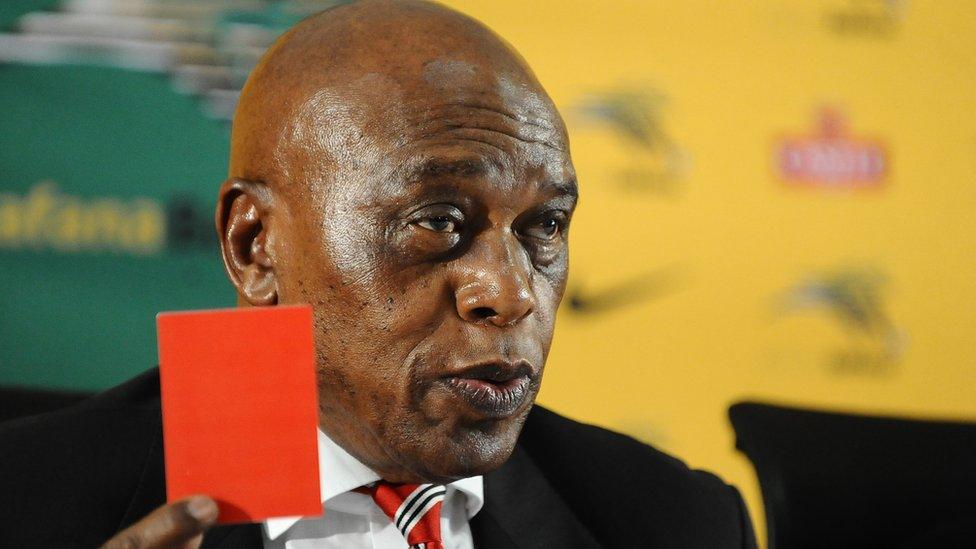
- Attribution
- Published23 February 2016
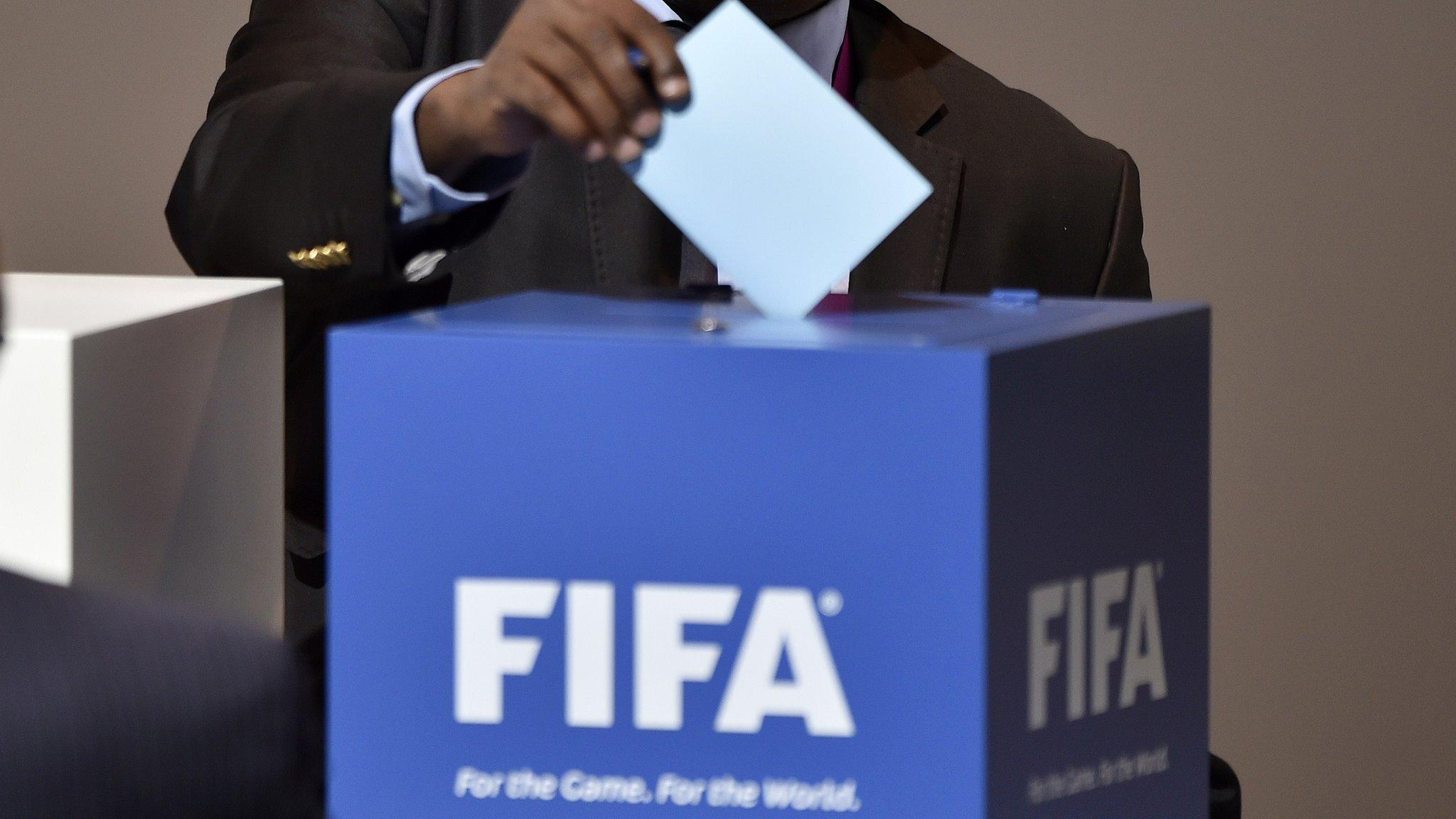
- Attribution
- Published24 February 2016
- Published14 June 2015